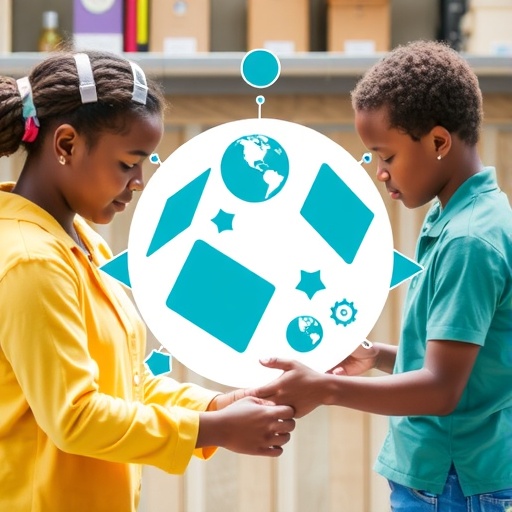In recent years, the discourse surrounding education for students with special educational needs (SEN) has gained momentum, particularly within the context of inclusive methodologies that advocate for competency development. A prominent study by González-Afonso, Perdomo-López, and Pérez-Jorge explores the concept of service-learning as a viable approach. Their research provides a comprehensive examination of both the potential and challenges associated with embedding service-learning into educational curricula designed for SEN students.
Service-learning is defined as an educational approach that combines learning objectives with community service, creating practical experiences that contribute to both the students’ growth and community needs. The integration of service-learning in the education of SEN students points towards an innovative shift that aligns educational practices with real-world needs. By engaging in projects that require critical thinking, collaboration, and social responsibility, these students may also develop essential competencies that are often overlooked in traditional educational settings.
One of the primary advantages of service-learning is its capacity to enhance engagement among students. The hands-on experiences that accompany service-learning can make the educational process more relatable and relevant, fostering a sense of belonging and motivation among SEN students. This relevance can help to mitigate some of the challenges facing these individuals in traditional classrooms. Students increasingly recognize the value of their contributions, and this acknowledgment can significantly boost their self-esteem and confidence.
Moreover, service-learning offers opportunities for developing social skills, communication abilities, and empathetic understanding. These competencies are critical for SEN students, who may face difficulties in interacting with peers. The collaborative nature of service-learning necessitates teamwork, helping students to learn from one another and to develop interpersonal skills in a supportive environment. This peer interaction can break down barriers and facilitate stronger connections, ultimately promoting inclusivity.
However, despite its myriad advantages, the incorporation of service-learning into educational programs designed for SEN students is not without its challenges. Teachers and educators may require additional training to effectively implement service-learning projects, particularly when it comes to creating appropriate accommodations for students’ diverse needs. The success of such initiatives also relies heavily on community partnerships, which may not always be readily available or adequately established.
Resource allocation is another significant concern. Service-learning projects often require substantial time, financial investment, and emotional commitment from educators, students, and community partners. In instances where resources are limited, the effectiveness of service-learning can be compromised. Schools must consider how to best allocate their resources while maintaining educational standards and student support.
Additionally, the inconsistency in the quality of service-learning experiences raises questions about the overall efficacy of this methodology in competency development for SEN students. Not all projects are created equal; the nature of the service and the type of skills targeted may significantly influence the outcomes for students. Therefore, careful planning, reflection, and program evaluation are paramount to ensure these experiences are meaningful and beneficial.
Importantly, the authors also emphasize the need for a comprehensive framework that supports the integration of service-learning into curriculum development for SEN students. This framework should account for diverse learning styles and include robust mechanisms for assessment and feedback. By implementing a cohesive approach, educators can facilitate a more seamless transition into service-learning and draw out its maximum potential for enhancing student competencies.
Furthermore, it’s essential to recognize the role of school leadership in facilitating these endeavors. Leaders in educational settings must create a culture that values inclusivity and community engagement, encouraging staff to embrace innovative methodologies like service-learning. By highlighting the benefits of such an approach, school leaders can also inspire educators to take on the challenges associated with such initiatives, ultimately improving outcomes for SEN students.
As the discourse evolves, there is a growing recognition that the educational needs of SEN students extend beyond academic performance. The holistic development of these individuals—spanning emotional, social, and practical skills—should be a primary focus. Service-learning, with its multifaceted approach, aligns well with this notion and promotes a comprehensive educational experience.
The study by González-Afonso and colleagues serves as a critical reminder of the multifaceted nature of education for SEN students. By shedding light on both the possibilities and challenges of service-learning as an inclusive methodology, their research paves the way for further inquiry and exploration in this increasingly significant area of education. Educational stakeholders are urged to engage with these insights and further investigate the role of service-learning in fostering an inclusive and effective learning environment.
In conclusion, the potential of service-learning as a transformative educational strategy for students with SEN is vast. However, maximizing this potential requires diligent planning, the establishment of community partnerships, and a commitment to ongoing assessment. As educational practices continue to evolve, methodologies like service-learning may prove instrumental in shaping a more inclusive and responsive educational landscape. The path forward necessitates collaboration among educators, researchers, and community members to ensure that we address the diverse needs of all students effectively.
Ultimately, the conversations initiated by this research and others alike will help to advance our understanding of effective methodologies and practices for nurturing the competencies of students with SEN. With a concerted effort, service-learning may truly empower SEN students to thrive and succeed both in and out of the academic sphere.
Subject of Research: Service-learning as an inclusive methodology for competency development in students with SEN.
Article Title: Potential and Challenges of Service-Learning as an Inclusive Methodology for Competency Development in Students with SEN.
Article References: González-Afonso, M.C., Perdomo-López, C. & Pérez-Jorge, D. Potential and challenges of service-learning as an inclusive methodology for competency development in students with SEN. Discov Educ 4, 485 (2025). https://doi.org/10.1007/s44217-025-00910-y
Image Credits: AI Generated
DOI: https://doi.org/10.1007/s44217-025-00910-y
Keywords: Service-learning, inclusive education, special educational needs, competency development, educational methodologies.




